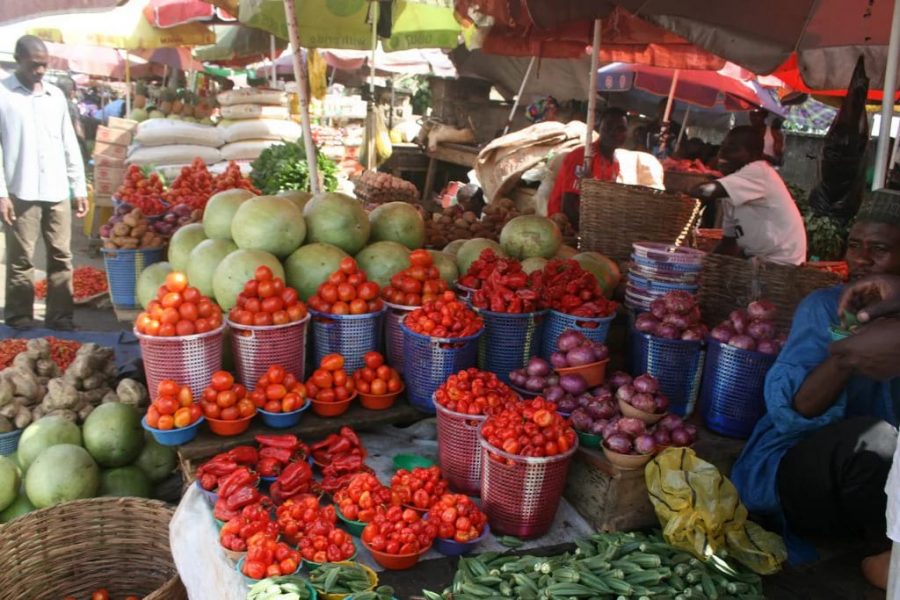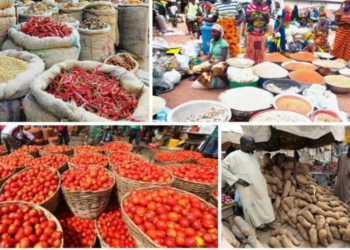Nigeria’s inflation rate continues to witness an increase in 2019 as the latest report from the National Bureau of Statistics (NBS) shows that it rose to 11.85% in November 2019.
Meanwhile, analysis of the data shows that eight of the top 10 states that recorded the highest inflation rates are from the Northern region of Nigeria.
Highlights of November inflation
According to the latest report, Nigeria’s inflation rate rose year on year to 11.85% in the month of November 2019, the highest rise in inflation since April 2018 (12.48%).
Food Inflation, a closely watched component of the inflation index rose by 14.48% in the month under review compared to 14.09% in October 2019.
- The Bureau noted that the rise in the food index was caused by increases in prices of bread, cereals, oils and fats, meat, potatoes, yam and other tubers, and fish.
- On a month-on-month basis, the food sub-index increased by 1.25% in November 2019, down by 0.08% points from 1.33% recorded in October 2019.
[READ MORE: Inflation may rise if borders are not opened – LCCI)
Core inflation, which proxies all items less farm produce, rose to 8.99% in November 2019 as against 8.88% in the previous month.
- On a month-on-month basis, the core inflation sub-index in November increased by 0.79% points.
- Details provided by the Bureau showed that the highest increase in prices was recorded in items such as cleaning, repair and hire of clothing, hospital services, hairdressing salons and personal grooming establishment and glassware.
- Other items include tableware and household utensils, vehicle spare parts, repair and hire of footwear, shoes and other footwear, clothing materials, other articles of clothing and clothing accessories, medical services and passenger transport by air.
Top 10 states with highest inflation in November
The latest inflation data for states disclosed that Kebbi, Ekiti, Niger, Gombe, Plateau, Adamawa, Kano, Ogun, Borno and Abuja were worst hit, recording the highest spikes in inflation rates.
Recall that in October inflation report, Oyo, Osun, Lagos State, and Ogun States were the worst hit. As reported by Nairametrics, the states are closest to the border towns, so they were feeling the full weight of the negative effect of the border closure.

Border closure and festive season driving prices
Although Ogun State, which is one of the closest to the border towns, has continued to feel the full weight of the border closure in the country, the spike in inflation rates recorded in the northern region may not be totally attributable to the border closure
- As earlier reported, as Nigerians continue to grapple with the effects of the border closure, the fast-approaching Christmas holiday is also piling pressure on the prices of essential goods and services. Nigerians typically spend the most towards the end of the year, particularly on household items such as food, fashion and gift items.
- Nigerians continue to experience a spike in the prices of goods and services, particularly food items since the border closure commenced.
- In our latest food market survey, poultry owners and other traders of food items disclosed to the Research Team that food items were expected to spike further in December due to the Yuletide period.
[READ ALSO: Border closure to slow down economic growth in 2020)
- Analysts are also of the opinion that inflation will further rise into the year 2020 as the economy continues to reflect the ripple effects of the border closure.
- Meanwhile, the Central Bank of Nigeria recently stated that an expected temporary food supply shock due to the border closure would adjust over the medium-to-long term as the economy increases investments in food production.


















